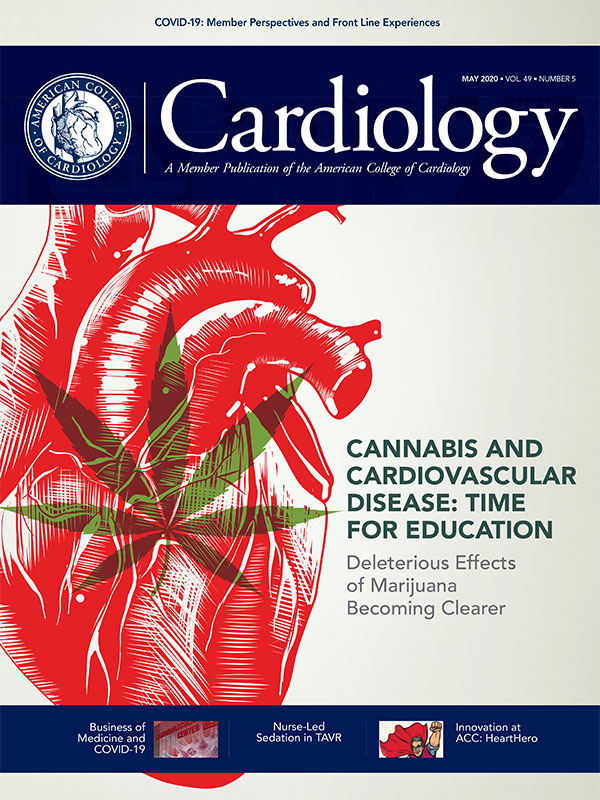Pediatric Hyperinflammatory Syndrome and COVID-19: Statement and Recommendations From a Pediatric Intensive Care International Collaborative Conference Call

A panel of internationally recognized experts in pediatric intensive care, pediatric cardiology, pediatric rheumatology, pediatric infectious disease and Kawasaki disease, along with more than 1,800 viewers, including pediatric clinicians and researchers, as well as representatives from the World Health Organization, National Institutes of Health, Centers for Disease Control and Prevention and European Commission, met on a 70-minute webinar of the Pediatric Intensive Care-COVID-19 International Collaborative hosted by Boston Children's Hospital on May 2, 2020.
The panel concluded the following:
- Up to this point in the pandemic, COVID-19 infection leading to critical illness in children remains very infrequent. Most children are asymptomatic or exhibit only mild symptoms.
- In the past two months, first in Europe, and more recently principally in cities along the East Coast of the U.S., with some now also reported in the Midwest and South, a small number of children have developed a more serious inflammatory syndrome in temporal association with COVID-19 in the community, often leading to hospitalization, and occasionally requiring intensive care.
- In order to promote immediate awareness and begin worldwide research collaboration on this disorder, we recommend that clinicians caring for children throughout the world, including pediatricians and experts in pediatric intensive care, cardiology, infectious disease, immunology and rheumatology, adopt the case definition put forth by the Royal College of Pediatrics and Child Health (see sidebar on right).
- Children with SARS-CoV-2-associated pediatric multisystem inflammatory syndrome have persistent fever, inflammation, evidence of poor function in a single organ or many organs, and other specific clinical and laboratory features, in the absence of other known infections. Some of these children have part or all of the features seen in Kawasaki disease and some have clinical and laboratory signs of cytokine storm syndrome. The PCR test and antibody test for SARS-CoV-2 may be positive or negative.
- Children with this syndrome benefit from care by a multidisciplinary team of specialists, including those with expertise in intensive care, cardiology, rheumatology, immunology and infectious diseases.
- A child presenting with persistent fever, inflammation (neutrophilia, elevated CRP and lymphopenia) and evidence of single or multiorgan dysfunction (shock, cardiac, respiratory, renal, gastrointestinal or neurological disorder) with additional features. This may include children fulfilling full or partial criteria for Kawasaki disease.
- Exclusion of any other microbial cause, including bacterial sepsis, staphylococcal or streptococcal shock syndromes, infections associated with myocarditis such as enterovirus (waiting for results of these investigations should not delay seeking expert advice).
- SARS-CoV-2 PCR testing may be positive or negative.
All stable children should be discussed as soon as possible with specialist services to ensure prompt treatment (pediatric infectious disease / cardiology / rheumatology*). There should be a low threshold for referral to Pediatric Intensive Care using normal pathways.
* Each Region may have a different specialty delivering support for inflammatory conditions including immunology, infectious diseases and rheumatology.
- Clinicians caring for children exhibiting features consistent with this case definition are urged to measure sequential inflammatory markers, which include: complete blood count/differential, CRP and ESR, coagulation studies with D-dimer, Ferritin, liver function tests, and cytokine panel. In addition to PCR tests for SARS-CoV-2, antibody tests should be undertaken. Many of the children are antibody positive even when PCR negative.
- Serial echocardiography including detailed assessment of the coronary arteries should be performed because many children with this syndrome have low heart function and some have enlargement of the coronary arteries.
- Because some children become sicker rapidly, children should be cared for in hospitals with availability of tertiary pediatric/cardiac intensive care units.
- It is urgent for children to be enrolled wherever possible in research protocols that include obtaining serum or plasma samples, DNA, and RNA studies for biobanking.
- We recommend that government and nongovernmental organization health agencies immediately invest in efforts to promote clinical trials, and data integration across existing and planned registries of children ill from COVID-19 or with the inflammatory disease described here, including multidiscipline and multinational collaboration, utilizing unique patient identifiers to avoid duplicate reporting of cases.
- Reports from many pediatric centers indicate that in addition to the severely ill children meeting the above definition, there are increased numbers of children with fever and evidence of inflammation who are not severely ill. Some of these children may progress to more severe illness, while others appear to recover without treatment. Therefore, all children with unexplained fever and elevated CRP or white count, should be carefully followed to detect progression. Further research is needed on the full spectrum of inflammatory disorders which appear to be related to COVID-19.
Clinical Topics: Acute Coronary Syndromes, Anticoagulation Management, Arrhythmias and Clinical EP, Cardiac Surgery, Congenital Heart Disease and Pediatric Cardiology, COVID-19 Hub, Diabetes and Cardiometabolic Disease, Dyslipidemia, Geriatric Cardiology, Heart Failure and Cardiomyopathies, Invasive Cardiovascular Angiography and Intervention, Noninvasive Imaging, Pericardial Disease, Prevention, Pulmonary Hypertension and Venous Thromboembolism, Sports and Exercise Cardiology, Stable Ischemic Heart Disease, Valvular Heart Disease, Vascular Medicine, Anticoagulation Management and ACS, Implantable Devices, SCD/Ventricular Arrhythmias, Atrial Fibrillation/Supraventricular Arrhythmias, Cardiac Surgery and Arrhythmias, Cardiac Surgery and CHD and Pediatrics, Cardiac Surgery and Heart Failure, Cardiac Surgery and SIHD, Cardiac Surgery and VHD, Congenital Heart Disease, CHD and Pediatrics and Arrhythmias, CHD and Pediatrics and Imaging, CHD and Pediatrics and Interventions, CHD and Pediatrics and Prevention, Acute Heart Failure, Pulmonary Hypertension, Interventions and ACS, Interventions and Imaging, Interventions and Structural Heart Disease, Interventions and Vascular Medicine, Angiography, Nuclear Imaging, Hypertension, Sleep Apnea, Sports and Exercise and Congenital Heart Disease and Pediatric Cardiology, Sports and Exercise and ECG and Stress Testing, Sports and Exercise and Imaging, Chronic Angina
Keywords: Acute Coronary Syndrome, Anticoagulants, Arrhythmias, Cardiac, Cardiac Surgical Procedures, Metabolic Syndrome, Angina, Stable, Heart Defects, Congenital, Dyslipidemias, Geriatrics, Heart Failure, Angiography, Diagnostic Imaging, Pericarditis, Secondary Prevention, Hypertension, Pulmonary, Sleep Apnea Syndromes, Sports, Angina, Stable, Exercise Test, Heart Valve Diseases, Aneurysm, COVID-19, Coronavirus, Coronavirus Infections, Cardiology Magazine, ACC Publications
< Back to Listings



